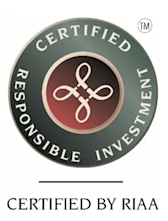Investing responsibly by investing wisely
Fisher Funds is committed to investing your money responsibly. Responsible investing is not just the right thing to do but also the wise thing. Our robust responsible investment policy and investment process help us select companies that:
have durable competitive advantages
have long runways for earnings growth
have talented management teams that are long-term focused and aligned with shareholders’ interests, and
are sustainable from an environmental and social as well as financial perspective.
Responsible Investing at Fisher Funds
Watch Senior Portfolio Manager, Robbie Urquhart explain how Fisher Funds approaches environmental, social, and governance (ESG) considerations.
A three-pronged approach.
1. Avoid the bad
We will not invest in companies that produce goods or services that can’t be used responsibly or that cause widespread harm.
This means we won't invest in companies:
that produce core components or systems used in weapons. This includes, but is not limited to, cluster munitions, landmines, chemical, biological and nuclear weapons. A 0% revenue threshold applies.
that own proved or probable fossil fuel reserves and revenue share from exploration and extraction of fossil fuels, excluding metallurgical coal, of 15% or more; or has its primary business activity in any of the following subsectors: integrated oil and gas, crude oil producers, offshore drilling and other services, oil and gas equipment and services, oil and gas drilling, oil and gas exploration and production, coal (excluding metallurgical coal) and consumable fuels.
that manufacture traditional tobacco products (which include but are not limited to cigarettes and cigars) E-cigarettes, heat-not-burn products and companies which grow or process raw tobacco leaves. A 0% revenue threshold applies.
where their core business includes operating gambling establishments, or the manufacture of specialised hardware or software used exclusively for gambling. A 5% revenue threshold applies.
For profit prisons. A 25% revenue threshold applies.
involved in the hunting of whales and the processing of whale meat. A 0% revenue threshold applies.
that have exhibited unacceptable corporate behaviour and that we regard as a fundamental breakdown of the integrity of the business. This includes but is not limited to human rights abuses, and abuse and degradation of the environment. These companies would be added to our Master Exclusion List (MEL).
As part of our MEL process, we screen for entities that have been involved in controversies. This is done by using the ‘norms based research’ as provided by our external research provider and is intended to flag entities are not specifically excluded in the above categories, but nevertheless may negatively harm, or impact the planet, people or society. If a stock is held in our investment portfolio(s) it is flagged as being involved in a controversy, the Responsible Investment team carries out an investigation and makes a recommendation to the ESG Committee regarding whether the entity is to be placed on the MEL and the stock divested. That decision is reviewed after two years, by following the same process of investigation and recommendation by the RI Team, and decision of the ESG Committee.
For thresholds and a full list of our exclusions criteria please refer to our Responsible Investment Policy.
Our Master Exclusion List outlines the companies and sectors excluded from our investment portfolio as determined by our Responsible Investment Policy.
Our Country Exclusion List outlines the countries excluded from our investment portfolio as determined by our Sanctions Policy.
2. Embrace the good
Once we have avoided the bad, we then seek to embrace the good.
A key element in our in-depth research process is a thorough understanding of how an entity works with its stakeholders, how it treats the environment and how it manages its governance responsibilities.
Our own research is supplemented with insights from leading global ESG data providers, giving us a 360-degree view of an entity and its impact on ESG factors.
Viewing a company through this lens helps us make better investment decisions.
3. Promote Change
The third element in our responsible investing process is promoting change within companies where we have a direct relationship.
To promote positive change we can use our voting rights as shareholders and leverage our relationship with entities to uphold our ESG approach.
Climate statements
Large financial institutions in New Zealand, including Fisher Funds, are now required by law to report on how climate change is currently impacting our funds and how it may impact funds in the future. These reports are known as climate statements.
Through these climate statements we intend to provide greater visibility of the risks of climate change on our funds, both physical risks, such as the impact of flooding, wildfires and higher temperatures on the businesses your fund invests in, as well as the associated risks to the economy in a low carbon future (sometimes called “transitional risks”) that can impact financial markets.
Read our first climate statements for the funds with a financial year end of 31 March 2025:
You can learn more about climate statements in our website article:
Stewardship Principles
Learn more about our stewardship approach, and our responsible investment framework. This includes our engagement and proxy voting practices and encompasses our approach to, and integration of, ESG risks and opportunities.
Proxy Voting
Fisher Funds believes that there is a strong link between good governance and financial returns. By actively voting, Fisher Funds can vote in favour to support resolutions or vote against when appropriate. Using our Proxy Voting Dashboard you can view how we have voted across our funds and time periods.
Principles for Responsible Investment
We are a signatory to the Principles for Responsible Investment and have a Responsible Investment Policy that touches on every element of our investment process.

Responsible Investment Association Australasia (RIAA) certification
RIAA’s RI Certification Symbol signifies that a product or service offers an investment style that considers environmental, social, governance or ethical considerations. The Symbol also signifies that the Fisher Funds KiwiSaver Plan Default Fund and Fisher Funds KiwiSaver Plan Growth Fund adheres to the strict operational and disclosure practices required under the Responsible Investment Certification Program for the category of Product. The Certification Symbol is a Trademark of the Responsible Investment Association Australasia (RIAA). Detailed information about RIAA, the Symbol and the Fisher Funds KiwiSaver Plan Default Fund methodology, performance and stock holdings can be found at www.responsiblereturns.com.au, together with details about other responsible investment products certified by RIAA. *

*The Responsible Investment Certification Program does not constitute financial product advice. Neither the Certification Symbol nor RIAA recommends to any person that any financial product is a suitable investment or that returns are guaranteed. Appropriate professional advice should be sought prior to making an investment decision. RIAA does not hold an Australian Financial Services Licence.

Got questions?
We've got answers.
Our team is available to tell you more and answer any questions you may have. Chat with us online or request a call by clicking the button below.